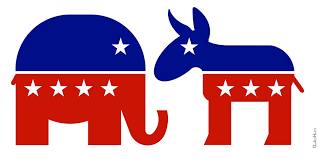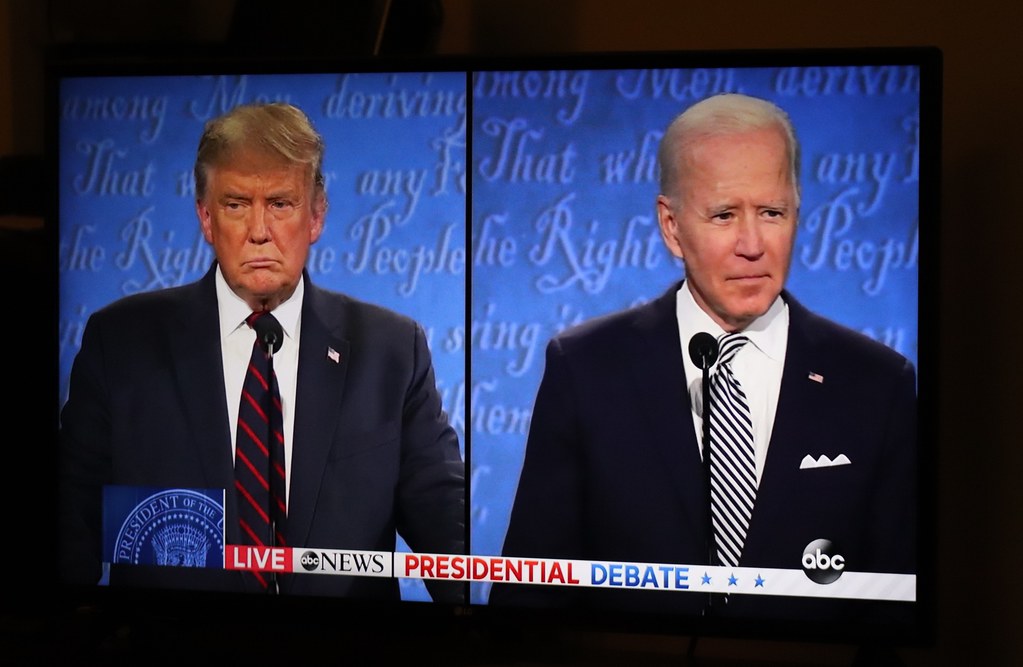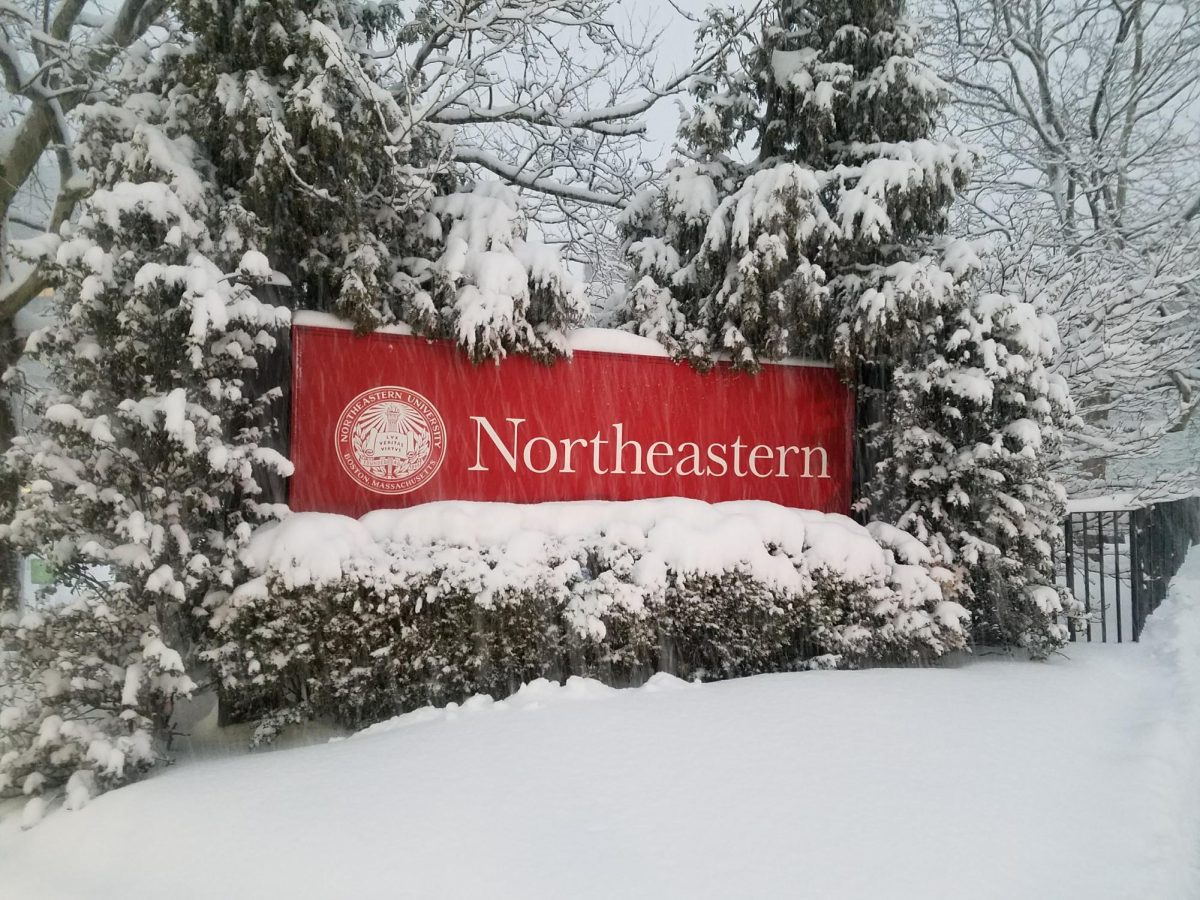
In 2024’s upcoming election, polling from Reuters/Ipsos shows significant dissatisfaction with both Joe Biden and Donald Trump, signaling a possible opening for Third Parties to sway an election. Candidates like Cornel West and Robert F. Kennedy Jr. have chosen to run as independents, with no parties backing them while Candidate Jill Stein runs under the flag of the Green Party. The 2024 Presidential Election will occur on November 5, 2024, where Incumbent President Joe Biden will rematch against his 2020 adversary, former President Donald Trump. The US has been tied to both the Republican and Democrat party since the country’s creation but with growing unpopularity between both candidates, a question starts to form: Is it time for third parties to break out into the mainstage of US Politics?
Being the nephew of President John F Kennedy, RFK Jr. has been in the political world his entire life. His father Robert F. Kennedy Senior. took on governmental roles, serving as attorney general as well as New York state senator. Branching out of the family name, RFK. Jr. could be described as an activist, author, and lawyer who cares specifically about environmental causes, leading him to found WaterKeeper Alliance, a nonprofit dedicated to securing clean water. RFK describes himself as a candidate who will work for the middle class, busting corporate mega monopolies with powerful interests. RFK. Jr launched his campaign in 2023, competing for the Democratic nominee. This plan did not last, with him announcing his plan to run as an Independent in October of the same year. Currently, he is the founding member of the We the People Party, a coalition that promotes environmentalism and libertarianism, while mixing both socially liberal and Speaking at a campaign rally in Las Vegas, RFK claims that he can “fix this country. All these agencies that intimidate normal politicians, I’ve sued every one of them” clearly using his lawyer background as a vantage point. Looking towards the future if he were to get elected, he wants to combat rising housing costs so young people can afford to buy homes. At this point, RFK. Jr seems like a typical independent candidate who would have a decent chance at snagging some votes. While this statement remains true, some parts of RFK. Jr’s campaign and his overall viability as a presidential hopeful put him in a tough position. His views on health care and vaccines seem to be the most problematic, with his opposition to vaccines being made clear with his appearance on The Joe Rogan Experience as well as his own RFK. Jr Podcast. In a July episode of the Lex Friedman podcast, Kennedy asserts that “there’s no vaccine that is safe and effective” while also urging people to resist the guidelines on vaccinations for kids set in place by the CDC.
If RFK Jr. isn’t all that is needed in a President, there are more options available on top of the regular Democrats and Republicans. Running under a third party is Jill Stein, 73, a physician and politician best known for her multiple campaigns for Presidential office as Green party candidate. Leaning hard towards the left on the political spectrum, she is a staunch advocate for environmentalism, social justice, and progressive policies. Running for President first in 2012, Stein caught attention for her platform focused on renewable energy, universal healthcare, and the relief of college student debt. While that campaign shined a little little on her, she did not gain any significant traction. This loss did not stop her as she pushed forward and ran again in 2016. In her campaign video, she claims she wants to “offer voters a choice outside of the failed two-party system. Her campaigns in both 2012 and 2016 emphasized issues such as climate change, income inequality, and opposition to corporate influence on politics, putting her in similar alignment with RFK. Jr. Putting her even more in line with RFK Jr, Stein’s candidacy was slightly rocked with controversy due to her stance on vaccinations. In an interview with the Washington Post in 2016, Stein claims she “wasn’t sure if all ‘real questions’ among physicians about health concerns with vaccines have been addressed”. Despite these challenges and limited electoral success, Stein’s persistence in running for office reflects her commitment to advancing progressive causes and challenging the status quo within American politics.
In the intricate tapestry of American Politics, the phenomenon of third-party candidates has persisted throughout history often garnering support despite slim chances of victory. While the dominant two-party system in the United States has long maintained its hold on America as a whole, a significant portion of voters still opt for alternative candidates. Understanding the reasoning behind these choices requires delving into several different factors. To begin, Those who choose to vote third party are often disillusioned with the policies and practices of both Democrats and Republicans. These voters may perceive the mainstream candidates are too entrenched in the status quo, leading them to seek alternatives that are more molded to their beliefs and values. In a interview with ABC News, Cornel West supporter Oliver Shampine says that he feels “the Democratic Party’s really moved away from representing any values that I have” for why he is voting for Cornel West. For many voters, supporting a third-party candidate is a means of expressing their ideological preferences. By casting their vote for a third-party candidate, individuals can signal their commitment to these principles, even if the candidate’s chances of victory are slim.For some voters, third-party candidates may represent the closest approximation of their policy preferences, even if they don’t expect them to win. In the absence of compelling choices from the major parties, these individuals may view third-party candidates as the most authentic expression of their values.
The likelihood of a third-party candidate winning the US Presidential election in any given year is typically quite low, and this year is unlikely to be an exception. The US political system is structured around a two-party framework, with the Democratic and Republican parties dominating the electoral landscape, giving both financial, institutional, and media advantages. Third- party candidates face numerous challenges,like limited ability to be on the ballot, exclusion from debates and difficulty in securing the necessary funding and resources to create a campaign on a national scale. In addition, American voters tend to be highly polarized, making it challenging for third-party candidates to attract broad-base support across the spectrum from left to right. While third parties can certainly influence the outcome of the election, the structural barriers they face make it highly improbable for them to emerge victorious in the current political landscape.
Third parties have historically played a significant but often underestimated role in US presidential elections, with their impact felt in various ways. To begin, third-party candidates who can disrupt the traditional two-party system by introducing alternative platforms and ideologies that may resonate with segments of the electorate dissatisfied with mainstream options. In this year’s election, it seems as though Cornel West has used this idea to his advantage, taking the farther-left voters away from Joe Biden due to his government actions during the Israel-Palestine Conflict. Another method employed by third-parties is the act of siphoning away votes from one of the major parties, influencing the outcome of the election. This was famously demonstrated in the 2000 Presidential election, where Ralph Nader, a former Democratic party member, left his party to take the green party nomination. At a Washington News conference in 2004, Nadar described how the parties were “converging with more and more similarities towering over the dwindling real differences they’re willing to struggle over.” Ralph Nadar’s Candidacy on the Green party ticket is often blamed for siphoning votes away from Al Gore, giving way to a victory from George W. Bush. Some drew the conclusion that Nadar cost the democrats the election. This sentiment was voiced again in 2016 with the theory that Libertarian and Green party tickets, the latter led by Jill Stein, sucked votes away from the Democratic nominee Hillary Clinton, helping to elect Trump. While third parties may face significant barriers to success in the US political system, their impact on presidential elections cannot be dismissed, as they continue to challenge the dominance of the two party system.






